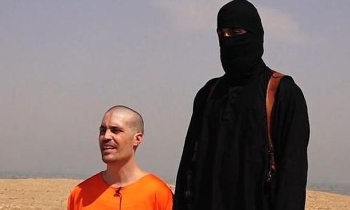Wikipedia, the open source online encyclopaedia, is to become a little less open - and, perhaps, a little better sourced - after a bruising encounter with a retired newspaper editor.
The website that has spawned some 850,000 articles in English alone since its creation in 2001 has been forced to tighten up its submission rules to prevent unregistered users dipping in and adding complete rubbish without any comeback.
The new rules were announced a week after John Seigenthaler, a former president of the American Society of Newspaper Editors, published a scathing opinion piece in USA Today after reading his own Wikipedia profile.
As the newly rewritten profile makes clear, Mr Seigenthaler is no ordinary hack. As a reporter on the Tennessean newspaper, he broke open corruption scandals, personally prevented a suicidal man jumping from a bridge - "I'll never forgive you," the man told him - and solved the mystery of a wealthy Nashville businessman who had run away with his secretary more than 20 years earlier.
Mr Seigenthaler's record as an editor and publisher was no less glittering. He was the founding editorial director of USA Today, the only national newspaper in America, and was honoured for his work encouraging press freedom.
But, according to Mr Seigenthaler, almost the only fact in a Wikipedia biography that sat on the site unchallenged for 132 days was that he was once Robert Kennedy's administrative assistant.
Instead, the biography said that Mr Seigenthaler had lived in the Soviet Union from 1971 to 1984. It added: "For a brief time, he was thought to have been directly involved in the Kennedy assassinations of both John, and his brother, Bobby. Nothing was ever proven."
When the biography was finally brought to his attention, Mr Seigenthaler, a pall-bearer at Robert Kennedy's funeral in 1968, was shocked. "At age 78, I thought I was beyond surprise or hurt at anything negative said about me. I was wrong," he wrote.
Although Wikipedia, and two other sites which republish Wikipedia content unchecked, quickly removed the offending article, Mr Weigenthaler had no luck trying to track down the man behind the "internet character assassination".
He was told by Jimmy Wales, the Wikipedia founder, that there was no way of finding out who wrote the offending article. Although the retired editor did manage to find the offender's IP address, he hit a brick wall with the person's internet service provider - no details would be given out without costly legal action.
Wikipedia has, at least, changed its rules. Mr Wales said this week that users will now have to register before they can create articles (although registration takes only a few seconds and no e-mail address is required).
The Wikipedia boss hopes that the registration requirement will limit the number of articles being created. While it would not prevent people from posting false information, the new process will make it easier, he said, for the site’s 600 active volunteers to review and remove factual errors, defaming statements and other material that runs afoul of Wikipedia policy.
"What we’re hopeful to see is that by slowing that down to 1,500 a day from several thousand, the people who are monitoring this will have more ability to improve the quality," Mr Wales said. "In many cases the types of things we see going on are impulse vandalism."
Whether the 600 volunteers will really be able to police a site that attracts a staggering two billion page views a month remains to be seen. Mr Seigenthaler is not convinced although he believes that Wikipedia has to act if it wants to retain its credibility.
"The marketplace of ideas ultimately will take care of the problem," Mr Seigenthaler said. "In the meantime, what happens to people like me?"









